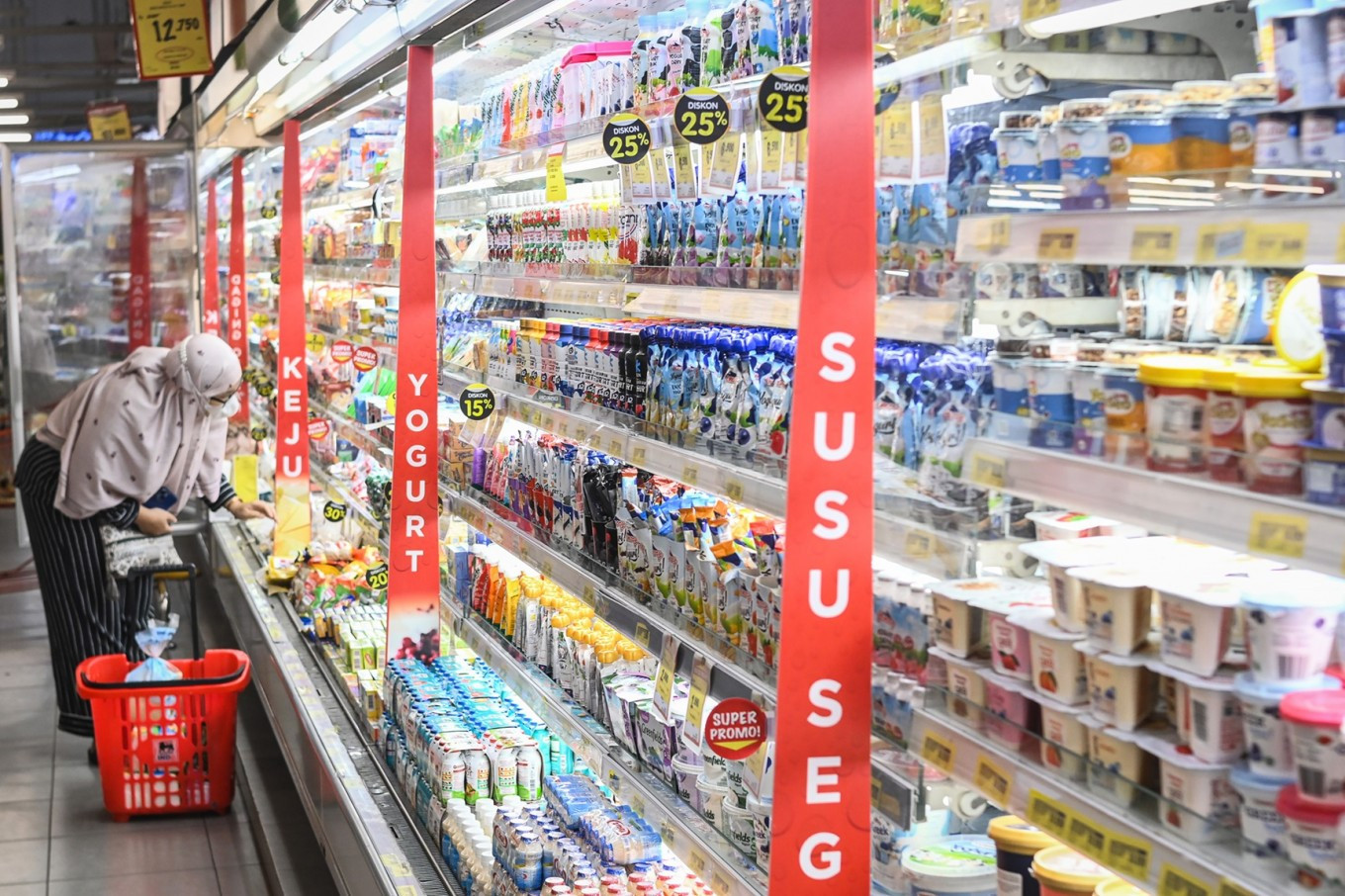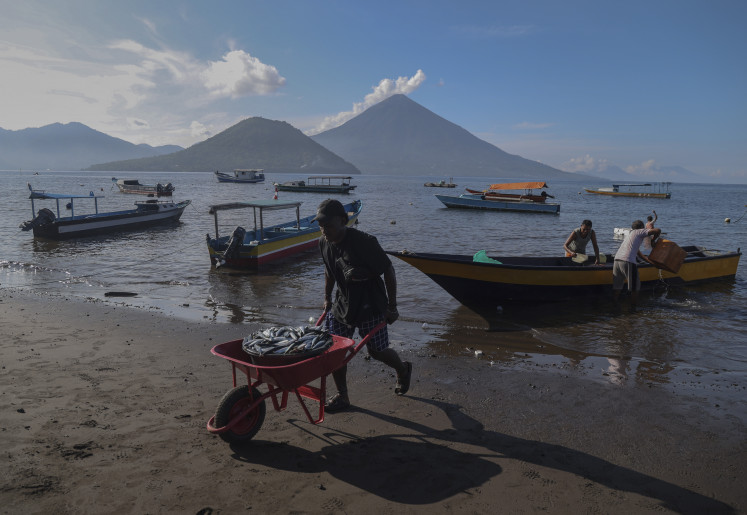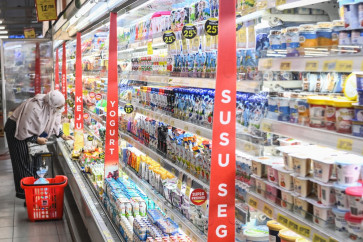Popular Reads
Top Results
Can't find what you're looking for?
View all search resultsPopular Reads
Top Results
Can't find what you're looking for?
View all search resultsRI consumers trading down as economic strain persists
Turning to cheaper products is one way for shoppers to deal with reduced spending power, but economists warn that a downtrading trend could further undermine economic growth.
Change text size
Gift Premium Articles
to Anyone
T
urning to cheaper products is one way for shoppers to deal with reduced spending power, but economists warn that a downtrading trend could further undermine economic growth in the country.
Twenty-three-year-old Jakarta resident Yasmina, who began interning after recently losing her job, takes a calculated approach to shopping for groceries:
“I don’t stick with one brand and always opt for discounted products,” she told The Jakarta Post on May 18.
Having moved to the capital several months ago, Yasmina says she has had to do some belt-tightening to keep up with rising living costs.
Nazla, a South Tangerang, Banten, resident working at a private company, said she had cut back on consumer spending in favor of long-term investment, which was easier said than done with a job paying less than the official minimum wage, forcing her to do without some of the goods she would purchase regularly in the past.
For example, Nazla explained, she used to buy fresh Starbucks coffee about twice a month but has now switched to cheaper local coffee brands, such as coffee sold at convenience stores.
Nazla has also started to purchase make-up products from local brands, which she said were competitive in terms of pricing and quality to the international products she used to buy.


















